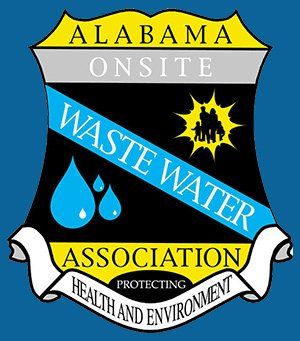5 Appliances That May Lead to Septic System Problems
- By Admin
- •
- 04 May, 2023
- •
All wastewater from your home ends up in the septic system. For this delicate system to function correctly, you must keep out certain liquids and objects. Many appliances in your home are the source of items that can damage your septic system. Discover some of those appliances.
1. Hot Tub
Wastewater from the hot tub can affect your septic system in several ways. The hot tub produces a huge amount of water that requires regular emptying. Excessive amounts of water can damage the septic system in many ways. The excessive amount of water can overflow or overwhelm your septic system. When the hot tub releases lots of water, it can disturb solid waste in your septic tank.
Other people also use chemicals in the hot tub for effective sanitation. Common chemicals for hot tubs include bath salts and chlorine. However, the chemicals might eventually end up in the septic system and kill useful bacteria. This will eventually affect the efficiency of the septic system in treating wastewater.
Some people also install the hot tub on top of the septic system. If the hot tub is too heavy, it can compact the ground beneath it. This can reduce ventilation in the septic tank and compact the drainfield.
2. Garbage Disposal Unit
The garbage disposal unit helps get rid of waste in your kitchen, but it can damage your septic system. Many people have a habit of putting most of their waste in the garbage disposal instead of the trash can, as they want to protect landfills. Unfortunately, the solids, biomass, and grease in the garbage disposal unit can eventually end up in the septic tank. This can cause clogging and require expensive repairs.
3. Toilet Bowl
The toilet bowl is a big user of wastewater in a home. While the bowl can handle excessive amounts of water, it can damage the septic system if you improperly use it. For instance, if excessive amounts of water flow into the toilet bowl, the balance in the septic tank will not easily exist. As a result, some homeowners try to restore the balance by installing a low-flow toilet to reduce water usage.
You also need to know the type of items that end up in the toilet. Items such as feminine hygiene products, dental floss, and paper towels can damage your septic system. On the other hand, baby wipes and gum can build up in the septic tank and cause clogging.
4. Water Softeners
Water softeners unnecessarily introduce an excessive amount of water into the septic system, often leading to an overflow. In addition, water softeners can stop solid waste from properly settling on the septic tank's bottom. The consequence is that the baffle won't properly stop sludge from escaping via the outlet. The sludge can accumulate in the drainfield pipes and lead to flooding.
Water softeners also have abundant amounts of sodium ions that help to remove magnesium and calcium ions from hard water. However, the sodium ions may end up in the septic tank and stop the decomposition of sludge. Accumulation of sludge leads to overflowing in the septic system. Homeowners have to schedule regular septic tank pumping to prevent sludge accumulation.
5. Dishwasher
If you run the dishwasher when it's not full, an excessive amount of water will enter the septic tank. The common approach is to wait for a full load before running the dishwasher. However, waiting for enough dishes to get dirty may not be appropriate. In this case, you can get a modern dishwasher model that uses less water to wash dishes, even when the dishwasher is not full.
If your septic system doesn’t work properly, Allen's Septic Tank Service can come and inspect it. We are a team of experts that provide all types of septic and sewer tank services to commercial and residential premises. Contact us today to learn more about our services.
Are you experiencing a sewage backup, slow drainage, or a pungent smell around the drain field? Perhaps the grass around your septic drain field is more lush and green than the rest of the yard. If you've noticed any of these signs, you might need to pump your septic tank.
To avoid hazardous and expensive septic system failures, pump your septic tank regularly. For homeowners, a septic tank pump job should happen every three to five years. However, this time frame will depend on the tank size and the number of occupants in the household.
From cost savings to better health, septic tank pump-outs offer numerous benefits. This guide enlightens you on the benefits of septic tank pumping.
Prevent Damage
Failure to pump the septic tank can result in mechanical and physical damage to the system. For instance, the waste could overwhelm and crack the outlet and inlet pipes if the excess sludge is not removed. Also, the excess waste could block the septic system and cause sewage back-ups in your sinks, toilets, and bathtubs. You will pay so much more to fix these issues than you'd have paid to empty the tank.
Regular pump-outs will prevent overfill, clogs, and blockages in the septic system. Also, the pump jobs will not only improve your system's overall efficiency but will also help to avoid extensive system damage.
Protect Your Family
The level of care you provide to your septic tank will correspond to the health of your household and surrounding environment. A brimming septic tank creates a health hazard to your household, neighbors, and even animals. For instance, sewage backup in your home or groundwater contamination can cause bacterial or viral diseases like typhoid, cholera, and rotavirus.
Also, if the septic tank is full, gas will build up in the chamber to produce dangerous fumes with ammonia, hydrogen sulfide, nitrogen dioxide, and carbon monoxide. The pungent smells produced aren't only unpleasant but also hazardous. These fumes can be poisonous even in small concentrations to cause shortness of breath, eye irritation, and worsened asthma symptoms. In high concentrations, the fumes can cause organ damage and even death.
To keep your loved ones and neighbors safe, make sure to pump your septic tank at the right time. If you're not sure, contact a septic tank contractor who will conduct an inspection and advise whether you need to get the septic tank pumped.
Protect Your Property
An overfilled or clogged septic tank can wreak havoc in your home. If the wastewater and sludge flood your yard or house, you can incur costly property damages. To avoid these issues and protect your property, empty your septic tank regularly.
Save Money
Overfull septic tanks can easily lead to system malfunctions or failure. In such cases, some septic system components may be faulty and require repair or replacement. If the damage is extensive, the whole system may need a replacement and cost you thousands of dollars.
Also, since an overfilled septic tank will cause damage to other structures such as your landscaping and home, the repair costs might be astronomical. And don't forget the medical expenses if you or your family member falls sick due to the health hazard presented by an overflowing septic system.
Avoid all these expenses through regular pump jobs of your septic tank. While septic tank pump-out will cost you money, you avoid a lot of issues to save in the long run. Also, you only need to empty your septic tank once every few years. Proper maintenance is key for optimal functioning and avoiding costly damages to your septic system.
Regular septic pumps can help prevent damage, prolong the system's lifespan, and improve performance. If you need any septic system services, Allen Turner Septic Tank Service can help.

